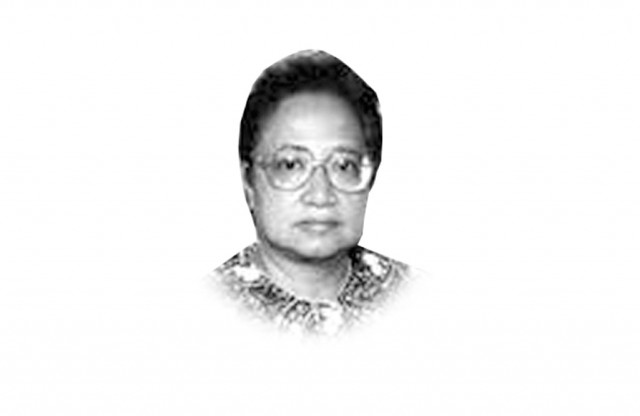Control and confession by torture
Today, police torture is taken as a given.

One day he was taken to a police station to watch a ‘procedure’. In a rear room, a terrified, pleading man hung upside down. Then, while other cops came to watch as if it were a spectator sport, one policeman with a whip proceeded to lash the screaming man. Unable to take it, the CSP officer ordered him to stop and cut the man down.
When he asked why they were indulging in torture and under what rules, he was told this was standard procedure to extract a confession and that they had been taught this from day one. When he protested that torture could elicit an untruthful confession just to stop the pain, they agreed but pointed out one difference: no worthwhile information would be forthcoming if the suspect were innocent and that confirmation would set him free.
And what about compensation to innocent victims who clearly needed hospitalisation? If there was such a provision in the law, nobody knew or paid attention to it. Perhaps at the very least, they could ensure that a government hospital would treat them. Besides, the damage done to individuals was one of the unavoidable consequences of protecting the greater good!
The reasons are not clear why, but not long after, the CSP officer resigned from government service and joined a quieter, intellectual world in the private sector.
In the late seventies, another young official, newly-arrived in Karachi from the northern areas, was treated to an identical experience. His description was more graphic. Instead of a whip, the instrument of choice was a long, narrow, flexible strip, cut lengthwise in one piece from a bamboo. When the policeman drew back his arm after striking a blow, the fine strands of the bamboo would lift the skin and tear it, drawing blood. It was far more lethal and painful than a whip; the blood-curdling screams said it all.
The official ordered the police to stop and emphasised the same unreliability of confessions through torture and the injustice of it all. The police, he said, would never dream of routinely meting out the same treatment to upper-crust, white-collar suspects. They politely agreed, but said there were exceptions when ordered at the highest levels. Unlike the CSP officer, he left the police station, but not government service, and suppressed the incident as a bad memory.
In the eighties, the family of a senior official in an autonomous government organisation, living near the ‘notorious’ Frere Police Station, was shaken by the screams of a man being inhumanly tortured. The official phoned them up: did they know the cries of the victims could be heard by every passerby? And across the road from where all this was happening? The screams stopped. Since nothing was ever again heard in subsequent days and years, the police had probably taken care to soundproof the room.
Nothing has changed to this day. This has set a bad example that political opportunists — not just criminals — have learned from. And a new element has been added. Nothing like the torture of innocents to terrorise entire communities or a city into submission. Innocent persons who have not forgiven or forgotten, as well as idle or impressionable youth, are easily manipulated to react under political protection.
Today, police torture is taken as a given. If researchers were to do a survey of the numbers and experiences of people tortured all over the country, it would fill a sickening encyclopedia. It doesn’t require the sophisticated techniques of Guantanamo Bay and Abu Ghraib to inflict maximum pain.
In practice, the police are not a neutral party existing to maintain law and order and to protect law-abiding citizens, but are used primarily for the security of rulers and officialdom, even carrying out unlawful orders against individuals or the citizenry. Throughout, many politicians have been quick to excuse their corruption on the grounds that they are poorly paid, but parliamentarians never take effective steps to improve their conditions and professionalism. On the other hand, recommendations made after enlisting Scotland Yard’s help were meticulously hijacked and nothing has really changed. Loyalty to the government of the day is maintained by allowing the police to be a legitimised mafia in its own right.
Under consistently worsening circumstances where even women and children are not spared either it is surprising that police torture, along with corruption and abuse, has not been taken up as a public issue by civil society. It has also not made its way to the chief justice for suo motu notice, and does not take high priority even among the ‘cleaner’ political parties who should work towards reform of the police as a whole.
Throughout our history, justice has required a cash price, whether in the courts of law or from the police. The less privileged and the poor don’t stand a chance which is why some take the law into their own hands. Without transparency, nothing will change. Can civic duty and fairness be expected from a police force groomed in third-degree methods?
Not everyone has a stomach for torture, although, obviously, many get desensitised enough to be able to perform violent ‘duties’. Given that inflicting pain can and does become a habit — and, perversely, even a source of sadistic pleasure, the stuff of psychiatric care and horror/gore movies — should cops be allowed to remain in positions of unwarranted power for the entirety of their careers? Or should service in the police be restricted to five to 10 years so that they don’t get completely dehumanised?
Compromised as they are, it was a foregone conclusion the police would never get a handle on Karachi. If the status quo is maintained, they never will.
Published in The Express Tribune, August 26th, 2011.















COMMENTS
Comments are moderated and generally will be posted if they are on-topic and not abusive.
For more information, please see our Comments FAQ